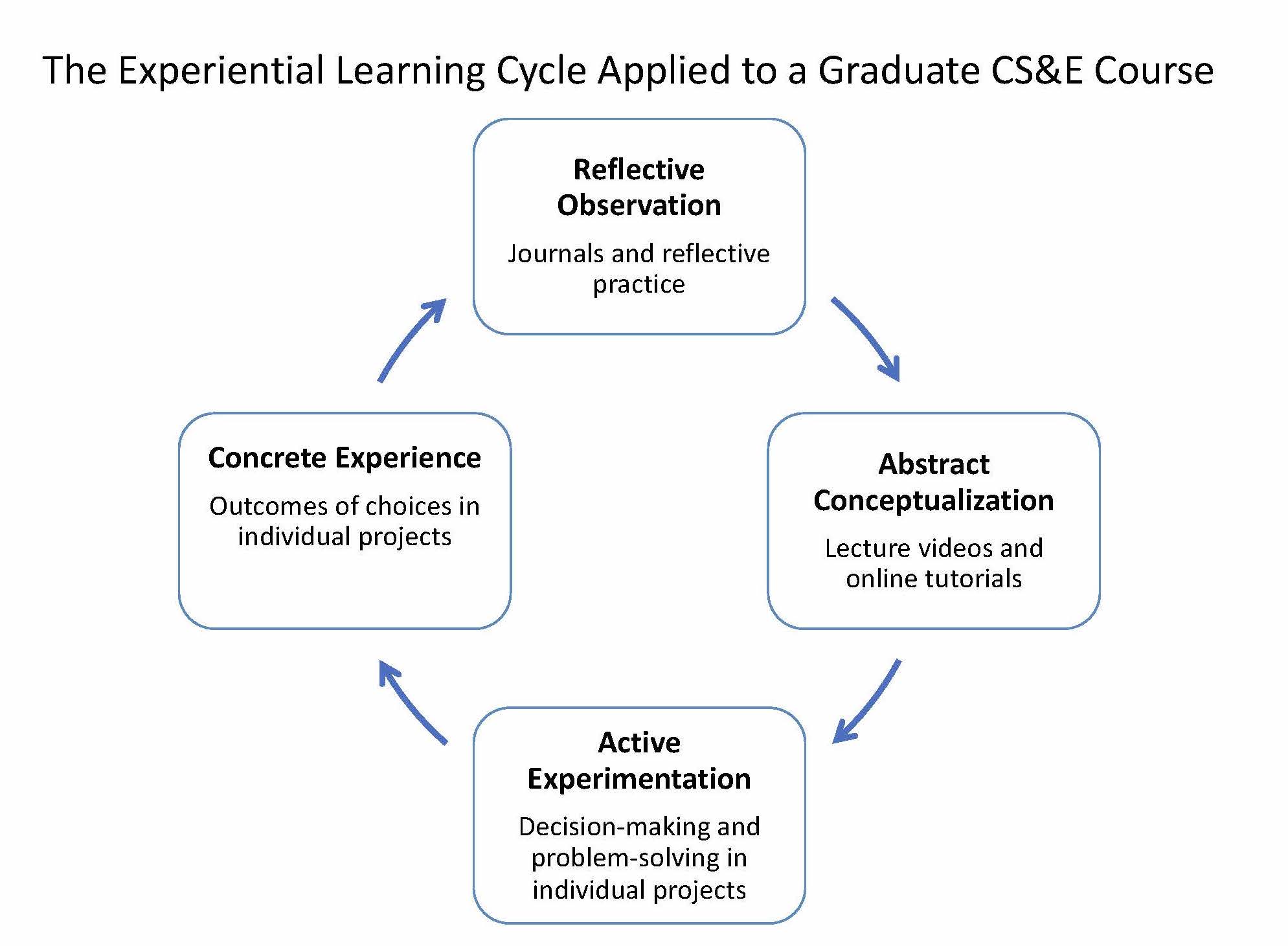
 |
| August 2022 Volume 11 Issue 3 |

CIG's mission was originally focused on creating software for the geodynamics community. Over the years, that focus has expanded to providing education to our community on not only how to use CIG-supported software but to include the spectrum of general computational science knowledge, from using the command line to software development and numerical methods.
A question of interest to many of the people who interact with CIG, is how to structure our students' education in Computational Science and Engineering (CS&E) courses, and what teaching methodologies might work best. Given that one of us teaches courses in this area, we started to look through the education literature. Unfortunately, in contrast to mathematics and many other STEM disciplines, essentially nothing exists on CS&E education. But CS&E presents its own challenges: courses are most frequently taught as Computational X courses (X=physics, chemistry, geosciences), needing to cover breadth rather than depth. Topics commonly found on syllabi might include teaching Linux, programming languages, compilers, general numerical methods, data processing, visualization, and applications to concrete disciplinary projects. [full article]
The CIG Speaker Series seeks to promote computational modeling in geodynamics and related Earth science disciplines. The series aims to bring computational geodynamics speakers to institutions that may not otherwise have access to speakers with expertise in computational science or computational geophysics. By doing so, we aim to connect speakers and CIG with audiences from a variety of STEM domains, and to broaden participation in CIG and to work toward building a more diverse community within computational geodynamics. Institutions interested in hosting a Speaker in 2022-2023 should apply by September 30, 2022.
See the website for more information.
Check out the latest in the FAIR movement. The FAIR4RS Working Group is jointly led by members of the Research Software Alliance (ReSAA), Future of Research Communications and E-Scholarship (FORCE11), and the Research Data Alliance (RDA). This global and interdisciplinary group was established in 2020 with the aim of developing community-endorsed FAIR principles for research software. The WG defines research software as:
Research Software includes source code files, algorithms, scripts, computational workflows and executables that were created during the research process or for a research purpose. Software components (e.g., operating systems, libraries, dependencies, packages, scripts, etc.) that are used for research but were not created during or with a clear research intent should be considered software in research and not Research Software. This differentiation may vary between disciplines.
The FAIR4RS Principles are:
F: Software, and its associated metadata, is easy for both humans and machines to find.
A: Software, and its metadata, is retrievable via standardized protocols.
I: Software interoperates with other software by exchanging data and/or metadata, and/or through
interaction via application programming interfaces (APIs), described through standards.
R: Software is both usable (can be executed) and reusable (can be understood, modified,
built upon, or incorporated into other software).
Landing pages for software can be accessed in several ways. The fastest way is by scrolling down on our home page and clicking on its name. Or try viewing the entire catalog by clicking on the Discover more software button on the bottom of the home page or selecting Software > Download from the toolbar. Select a Tag to filter the Resources. Select a resource and click on its name to access its landing page. Software can be accessed through its landing page by either clicking the top button or by navigating to Supporting Docs to select the resource you wish to download.
Nominations are now open for this year's elections - 2 seats are open on the Executive Committee and 2 on the Science Steering Committee. We are thank Claire Currie and Bruce Buffet for their leadership on the EC and SSC members Juliane Dannberg and Scott King for their contributions to the community. Email the Nominations Committee your nominations for these key governance positions as we look towards CIG IV. A candidate can be placed on the slate by the Nominating Committee or by nomination by three Member Representatives. [email]
| Aug 28 - Sep 2 | Ada Lovelace Workshop |
| September 11-17 | Rayleigh Hackathon |
| October 26-27 | SPECFEM Workshop for Developers |
| Fall | Seismic Cylces Workshop |
| November | Business Meeting |
Registration for Workshops will be announced as they become available.
ASPECT 2.4.0 24 July 2022
PyLith 3.0.0 6 June 2022
Rayleigh 1.1.0 5 May 2022